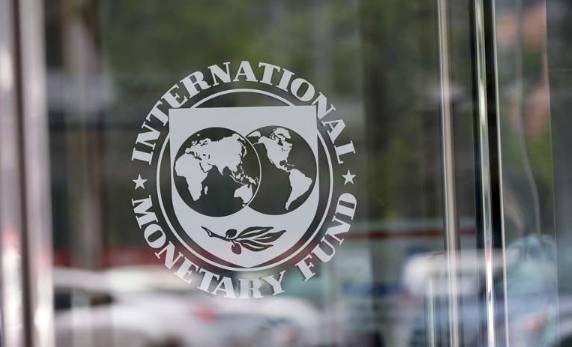
Rockefeller Center professor at Dartmouth College and author of popular books on economics, statistics, and finance Charles Whelan explains in his book Naked Economy: Exposing the Dull Science why open economies grow faster than closed ones, natural resource wealth can sometimes hinder the development of a people, and freedom self-expression is more important for the economy than well-functioning railways.
Charles Whelan teaches courses in international politics, economics and taxation at the Rockefeller Center at Dartmoor College, writes columns for Yahoo! Finance, The Economist and The New York Times and the Wall Street Journal, and has written several bestselling books that explain everything related to his area of expertise in accessible language.
One of the bestsellers, The Naked Economy, was published in October by Mann, Ivanov and Ferber. Forbes publishes an excerpt.
According to the Food and Agriculture Organization of the United Nations, one billion people on our planet do not get enough food. The vast majority live in developing countries, about half in India and China. How is this even possible in our age? We split the atom, landed on the moon, deciphered the human genome. Why do 2 billion people on our planet survive on less than two measly dollars a day?
Geography
Let me give you some amazing data: only two of the 30 countries classified as rich in the World Bank’s rankings, in particular Hong Kong and Singapore, are located between the Tropic of Cancer parallel that passes through Mexico, North Africa and India, and the Tropic of Capricorn parallel that crosses Brazil, northern tip of South Africa and Australia. Apparently, the geographical location can be considered as luck that fell to our lot, a kind of legacy that people in developed countries take for granted. Development expert Jeffrey Sacks, in his seminal article, argues that the distribution of income in the world is largely due to climate. He writes: “Given the different political, economic and social patterns that have developed in different regions of the world, it cannot be considered a coincidence that almost all countries located in the tropics remain underdeveloped at the threshold of the 21st century.” The US and all of Europe lie outside the tropics; most of Central and South America, Africa and Southeast Asia are located within this climate zone.
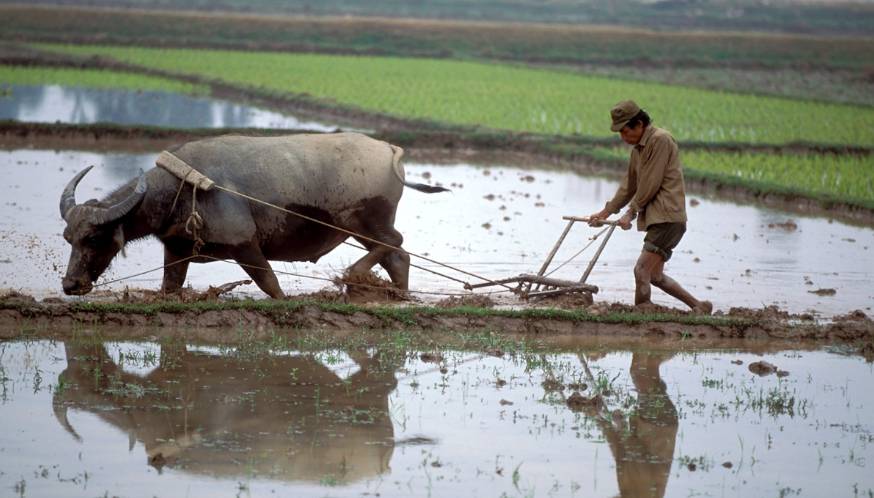
The weather in the tropics is great for vacations, why isn’t it good for everything else? The reason, according to Jeffrey Sachs, is that high temperatures and tropical rains do not contribute to food production, but contribute to the spread of various diseases. Thus, the two main virtues of rich countries—the high efficiency of food production and the fairly good health of the population—cannot be replicated in the tropics. Why don’t Chicagoans get malaria? Because cold winters kill the mosquitoes that carry this disease, and not because our smart scientists have managed to defeat it. In addition, another trap awaits people in the tropics: the lion’s share of the population of tropical countries is forced to engage in low-productive agriculture. And their crops, and therefore life, are unlikely to ever improve on their own, given the scarcity of the soil, the unpredictability of rainfall, and the many agricultural pests that destroy crops.
Of course, countries cannot be taken and transferred to an area with a favorable climate. And economist Jeffrey Sachs offers two more practical solutions. First, there should be stronger encouragement of technological innovations designed to take into account the unique ecology of the tropics. It is sad that scientists, like bank robbers, go where the money is.
Pharmaceutical companies profit from the development of hit drugs for consumers in the developed world. Of the 1,233 new drugs patented between 1975 and 1997, only 13 were for tropical diseases. But even this regional focus is overstated, because nine of those 13 drugs came only from research conducted by the US military during the Vietnam War or research commissioned by the cattle and pet market. How do we get private drug companies to give as much attention to sleeping sickness (no major drug company is currently working on developing drugs to treat it) as they do to canine Alzheimer’s disease, for which Pfizer already offers a cure? To do this, you need to change the incentives.
In 2005, British Prime Minister Gordon Brown backed a long-standing idea by some economists to identify which disease is the worst hit in the world’s poorest countries and offer a large cash prize to the first company to develop a vaccine that meets a set of predetermined criteria such as efficacy, safety for children, no need for storage in the refrigerator and the like. Admittedly, Brown’s plan was a little more complicated: he assumed that rich governments would commit themselves in advance to purchase at a set price a certain number of doses of the winning vaccine. Poor people would get a drug to save their lives, and the pharmaceutical company would get something that would allow it to offset the cost of creating a new drug, that is, return on investment, just like they get it from the development of drugs that they readily buy consumers in rich countries. It should be noted that the British government has been thinking in this vein for a very long time. As early as 1714, having calculated that 2,000 sailors died because ships lost their course at sea, crashed into rocky shores and drowned, the government of the British Empire offered £20,000 to someone who would develop an instrument for measuring longitude at sea. This is how the chronometer was invented.
The second way to get poor tropical countries out of the trap of subsistence agriculture, according to Jeffrey Sachs, is to open their economies to the rest of the world. Thus, he notes: “If a country can break through the non-agricultural sectors to higher incomes – for example, through a significant expansion of exports of manufactured goods – the burden of the tropics will be significantly reduced.” And again we return to the good old trade.
Openness to trade
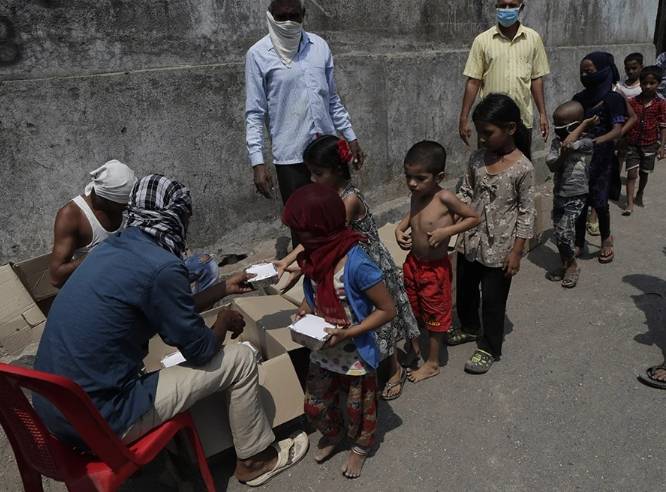
The flawed logic of protectionism (the idea that not consuming foreign goods can make a country richer) seems attractive. Strategies like “self-sufficiency” and “state leadership” have characterized many post-colonial regimes, including India and much of Africa. Customs barriers were designed to create a kind of “incubator” for domestic industries, so that they are strong enough to withstand international competition. But, as economics teaches, companies protected from competition do not grow in strength, they get fat and become lazy. And political science says that the industries placed in the “incubator” remain there forever. The result of such an approach, in the words of one economist, is “economic exile, and in large part adopted by the will of the exile himself.” And it turns out it’s pretty expensive.
Already today we have a large amount of data that confirms that open economies are growing faster than closed ones. In one of the most authoritative studies, Jeffrey Sachs, now director of the Earth Institute at Columbia University, and Andrew Warner, a researcher at the Center for International Development at Harvard University, compared the performance of closed economies (which were defined by high tariffs and other restrictions on international trade) with efficiency of open economies. It turned out that in 1970-1980 among poor countries, the annual per capita growth rate of closed economies was 0.7%, and open – 4.5%. But the most interesting thing is that when a closed economy opens, its growth rate increases by more than a percentage point per year. To be fair, some prominent economists have criticized the results of this study on the grounds (among other claims) that a closed-to-trade economy tends to have many other problems. Therefore, the question is, are these economies growing slowly precisely because of the lack of trade, or because of general macroeconomic dysfunction? And is trade the reason for this growth, or is it just that something is happening while the economy is growing for other reasons? After all, during long periods of rising economic growth, the number of television sets sold does increase, but television viewing has yet to make any country richer in the world.
Quite fittingly for our discussion, the American Economic Review, one of the most respected journals in its field, published an article entitled “Does Trade Cause Economic Growth?” The authors of the article answered this question in the affirmative. Other things being equal, countries that trade more actively do indeed have higher per capita incomes. Jeffrey Frankel, an economist at Harvard University, and David Romer of the University of California at Berkeley conclude that their results “reinforce the case for the importance of trade and the policies that promote it.”
However, there are still plenty of reasons for critics to complain. This is what they are doing. At the same time, we have very strong theoretical grounds for believing that international trade does indeed improve the economic situation of countries, as well as reliable evidence that it is one of the most important factors that has divided countries into winners and losers in recent decades. And rich countries certainly have a role to play by opening their own economies to the export of goods from poor countries. Geoffrey Sachs has called us to a New Deal for Africa. He writes: “The current pattern of wealthy countries to bail out countries in sub-Saharan Africa while blocking the export of their textiles, leather goods, shoes, and other labor-intensive goods is perhaps more than just cynical. In fact, such an attitude initially undermines Africa’s chances for economic development.
Responsible fiscal and monetary policy

Governments, like people, are in serious trouble if they consistently spend too much on something that does not increase their productivity in the future. At the very least, large budget deficits force governments to borrow heavily, and such policies make capital unavailable to private borrowers, who would likely use it more efficiently. Spending that creates chronic deficits can also point to other problems down the road, such as higher taxes (to pay off government debt), inflation (to dilute the cost of debt), and even default (failure to pay debt).
All these problems accumulate and are only exacerbated if the state borrows heavily from abroad to finance its gigantic expenses. In such circumstances, if foreign investors feel threatened, they immediately decide to take their money and leave the market, citing a loss of confidence, which is what timid global investors tend to do. After that, the capital used to finance the deficit disappears or becomes prohibitively expensive. In short, the holiday is coming to an end. The country is on the verge of default, which we have seen in a number of countries, from Mexico to Turkey. By the way, some people have a fear, though not too big, that the United States may also suffer the same.
As for the monetary side of things, as was made clear in Chapter 10, the financial party cannot be allowed to get out of hand. And yet this often happens. The most striking example of irresponsible monetary policy today is Argentina: between 1960 and 1994, the average inflation rate in this country was 127% per year. Putting this figure in perspective, it turns out that the Argentine investor, who in 1960 had the equivalent of $1 billion in savings and until 1994 kept it exclusively in Argentine pesos, by the end of this period was left with an amount whose purchasing power is equal to one thirteenth a penny. World Bank economist William Easterly notes: “Trying to generate healthy growth when inflation is high is like trying to win the Olympic sprint by jumping on one leg.”
Natural Resources Matter Less Than You May Think
Israel, which does not have any significant deposits of oil on its territory, is much richer than almost all of its Middle Eastern neighbors, which have huge oil resources. Its per capita GDP is $28,300, Saudi Arabia’s is $20,500, and Iran’s is $12,800. And resource-poor nations like Japan and Switzerland fared much better than those rich in oil and gas Russia.
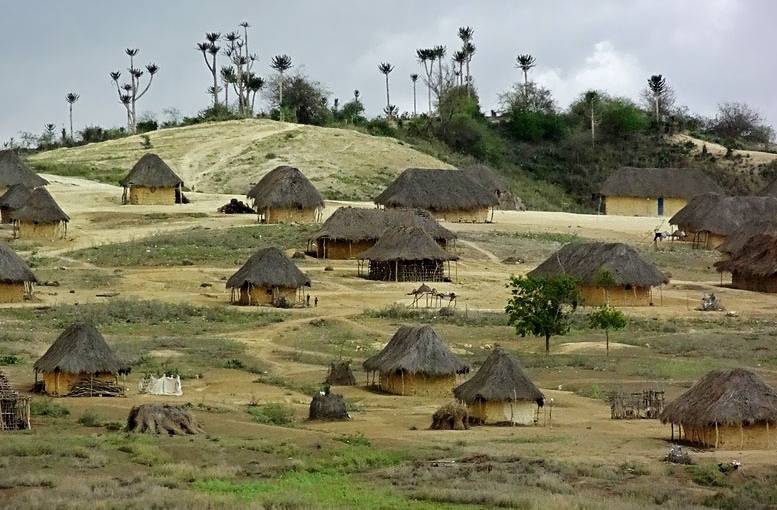
Or take, for example, another oil rich man – Angola. This country earns about $3.5 billion a year from its oil industry. What happens to a people that could live happily ever after thanks to the treasures in their bowels? The lion’s share of “oil” money goes to finance the endless civil war that has ravaged the country. Angola has the world’s highest landmine disability rate, one in every 133. A third of Angolan children die before they reach the age of five; life expectancy is only 42 years. Even in the capital, in many areas there is no electricity, running water and sewerage, and no one collects garbage.
Meanwhile, all these are not at all some marginal examples carefully selected by me to confirm my innocence. According to economists, the wealth of natural resources may actually hinder the economic development of the people. Ceteris paribus, to open the world’s largest zinc deposit on the territory of one’s own country would, of course, be simply wonderful. However, these other conditions are never equal. The experience of countries rich in natural resources shows that sometimes such wealth does more harm than good. According to one economic development study conducted in 97 countries over 20 years, countries with less natural resource wealth are growing faster. Of the 18 countries in the top ranking in terms of economic growth, only two are rich in resources. How to explain it?
Huge mineral deposits are changing the country’s economy. First, they divert resources away from other industries, such as manufacturing and trade, which are often more useful for sustainable long-term growth. For example, the “Asian tigers” were not at all rich in resources, their path to prosperity began with labor-intensive exports, followed by a transition to knowledge-intensive export production. As they progressed along this path, these countries steadily became richer and richer. Second, the economies of countries that own a particular natural resource become more vulnerable to sharp price hikes for that commodity. A country whose economy is heavily dependent on oil faces huge difficulties when oil prices fall from $90 to $15 per barrel. Meanwhile, the demand for the national currency of this country is growing as the rest of the world begins to buy diamonds, bauxites or natural gas mined in it. All this leads to an increase in the value of the national currency and, accordingly, as we already know, increases the cost of other products exported by the country.
In observing the economic effects of the discovery by the Netherlands of a huge natural gas field in the North Sea in the 1950s, economists identified a number of negative consequences of resource abundance and called them “Dutch disease”. The surge in natural gas exports dramatically increased the value of the Dutch guilder as the rest of the world needed more guilders to pay for these supplies; this increase made life difficult for other exporters. In addition, the Dutch government used gas export revenues to increase social payments, which led to a sharp increase in employers’ social security contributions and, consequently, their production costs. The Dutch have long been considered a trading nation; exports in this country accounted for more than 50% of GDP. By 1970, other export industries, traditionally the backbone of the Dutch economy’s viability, had lost some of their competitiveness. One business publication wrote: “Gas has so inflated and distorted the economy of the Netherlands that there is great doubt that this resource is solely for the benefit of the trading nation.”
Lastly, and perhaps most importantly, resource-gifted countries could use their revenues to improve the well-being of their peoples, but they do not. Money that could go into public investment with huge and critical dividends—education, health care, sanitation, vaccinations, infrastructure, and more—is far more likely to be squandered. After the World Bank helped build an oil pipeline that runs from Chad through Cameroon to the ocean, Chadian President Idriss Déby spent the first $4.5 million in oil money to buy weapons to fight the rebels.
Democracy
What do you think is more important for the successful economic growth of poor countries – running trains on time or such subtleties as freedom of expression and political representation? It turns out that not the first – quite the contrary. Democracy is an instrument of protection against the most egregious measures and methods of economic policy, such as the expropriation of wealth and property.
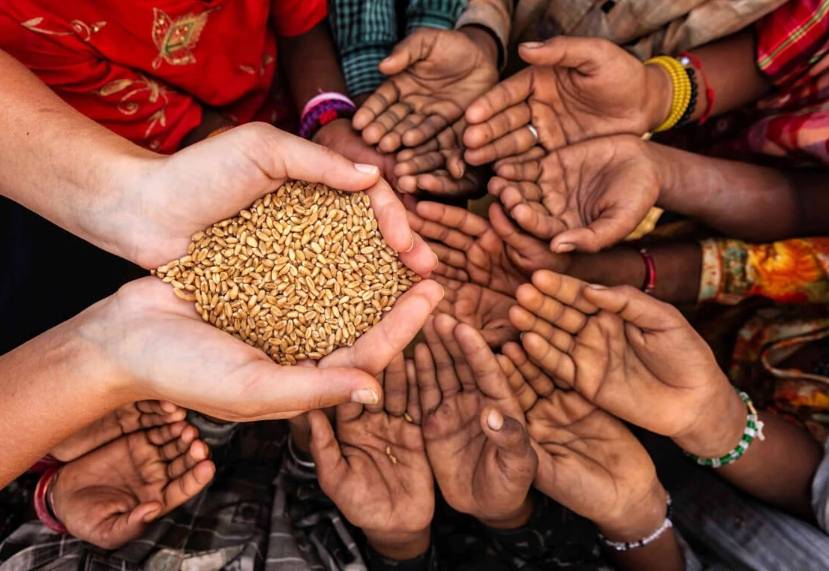
Amartya Sen, Professor of Economics and Philosophy at Harvard University, was awarded the Nobel Prize in Economics in 1998 for his work on the economics of poverty and prosperity; one of these works is devoted to the study of the problems of mass starvation. Mr. Sen’s main conclusion is truly striking: the worst cases of mass famine did not occur because of crop failures, but were caused by flawed political systems that did not allow the market to correct itself. Relatively minor problems in agriculture escalated into global catastrophes because the government banned imports, prevented prices from rising, prevented farmers from growing alternative crops, or policies otherwise interfered with the normal ability of markets to correct themselves. Sen writes: “[Mass famine] has never happened before in an independent country where elections are held regularly, where there are opposition parties that criticize the government, and where newspapers freely report to the people about what is happening and challenge the wisdom of public policy without being seriously censored.” The largest famine in human history was recorded in China: in 1958-1961, 30 million people died as a result of the failure of the Great Leap Forward campaign. But in India, since the country gained independence in 1947, there has never been a large-scale famine.
Economist Robert Barro’s decades of fundamental research on the economic growth of about a hundred countries has shown that a country’s foundations of democracy are strongly correlated with higher economic growth rates. However, more advanced democracies tend to grow at somewhat slower rates. This conclusion is consistent with our understanding of how interest groups can lobby for a policy that is not always favorable for the economy as a whole.
The negative effect of war
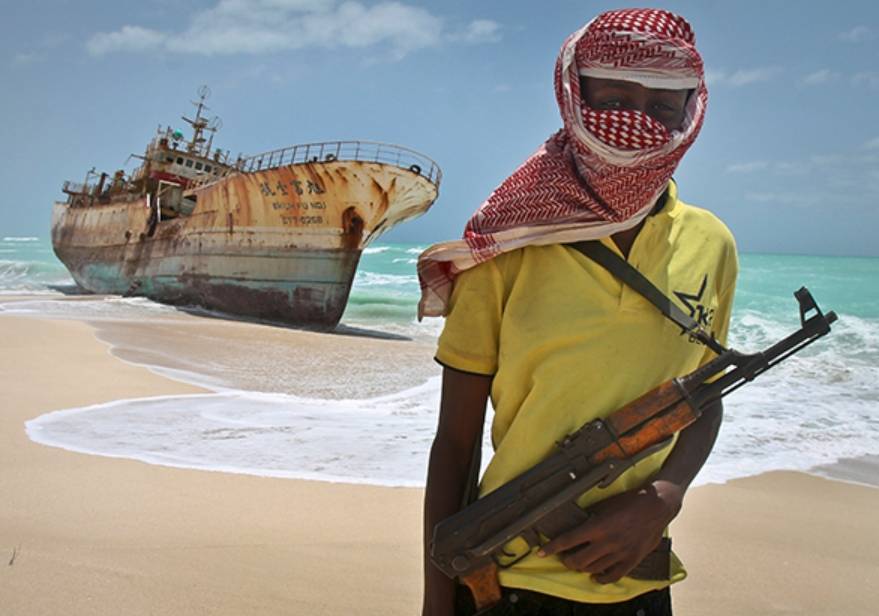
And now we have to tell you a really shocking information. Even today, in our time, a surprising number of extremely poor countries are involved in various kinds of armed conflicts. Paul Collier, director of the Oxford Center for African Economics and author of The Bottom Billion, points out that nearly three-quarters of the world’s poorest people are in or living in civil war or have recently gone through this nightmare. In the midst of a war, it is extremely difficult to do business or get an education. Obviously, causation works both ways here: war devastates countries, and countries that are in ruins are more likely to let themselves be plunged into the horrors of civil war.
Once again, the wealth of natural resources can only make matters worse, as huge proceeds from their sale go to finance weapons and give separate factions another reason for enmity. (Collier even twisted a well-known frivolous quote: “Diamonds are the best friends of the guerrillas”)
Security is a necessary condition for the existence of most other factors for the prosperity of the economy. In 2004, The Economist published a story about the challenges of doing business in Somalia, a country torn apart by civil wars for over 30 years. The article read, in part: “There are only two ways to start a new business in Somalia. You can pay a local field commander, usually not the most reliable guy in the world, and hope that he will be able to convince his subordinates not to kill your employees. The second option is to send him to hell and hire his own militia.”

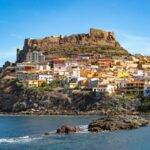 Exploring the Enigma of ‘Blue Zones’: Global Hotspots for Longevity
Exploring the Enigma of ‘Blue Zones’: Global Hotspots for Longevity  Ethical Considerations in the Development of Future AI Assistants: Insights from Researchers
Ethical Considerations in the Development of Future AI Assistants: Insights from Researchers  AI Revolutionizes Agriculture: Robotics and Lasers Join Forces to Tackle Weeds Across Farmlands
AI Revolutionizes Agriculture: Robotics and Lasers Join Forces to Tackle Weeds Across Farmlands  AI Unveils Groundbreaking Antibiotic Effective Against Superbugs
AI Unveils Groundbreaking Antibiotic Effective Against Superbugs 